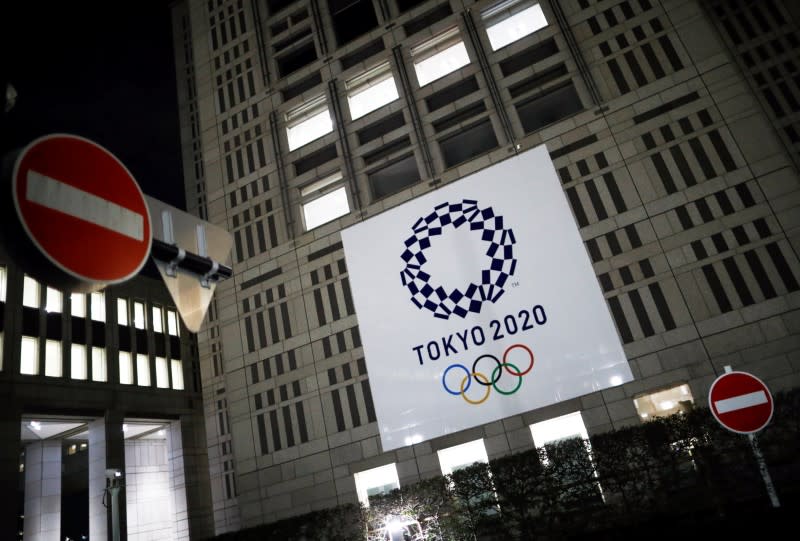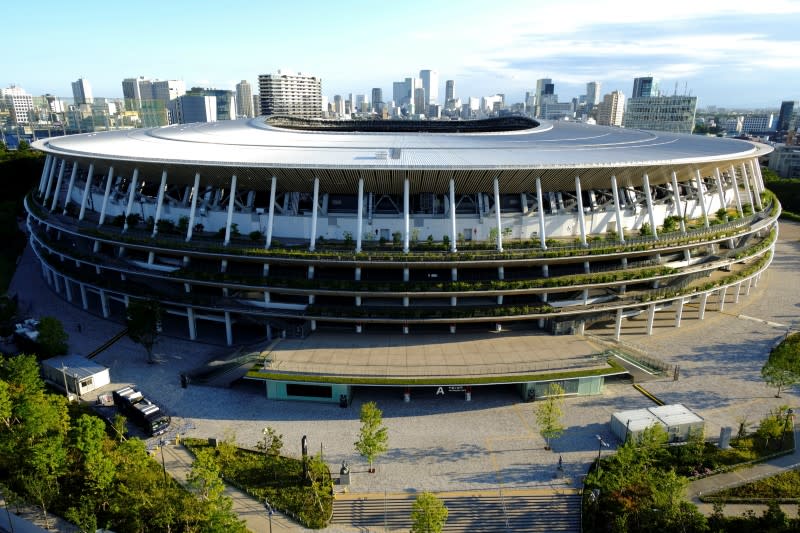Health experts warn of Olympic COVID-19 threat, prefer no spectators
(Refiles to delete extraneous word in par 8)
By Sakura Murakami, Rocky Swift and Linda Sieg
TOKYO (Reuters) - Japan's top medical experts warned on Friday that holding the Olympics during the COVID-19 pandemic could increase infections, and said banning all spectators was the least risky option, setting up a possible collision with organisers.
The report, led by top health adviser Shigeru Omi, was released after Tokyo 2020's organising committee chief told the Sankei newspaper she wanted to allow up to 10,000 spectators at stadiums for the global sport extravaganza, which kicks off on July 23.
Japan is pushing ahead with hosting the multi-billion-dollar delayed Games despite worries about another surge in COVID-19 infections and strong public opposition, although organisers have banned spectators from overseas.
Cancellation of the event - originally meant to showcase a revitalised nation after decades of doldrums - would be costly for organisers, the Tokyo government, sponsors and insurers.
"This event is different from ordinary sports events in scale and social interest and because it overlaps with summer vacations ... there is a risk the movement of people and opportunities to interact during the Olympics will spread infections and strain the medical system," the experts said. "Holding with Games without spectators is the least risky option and we think desirable."
A final decision on domestic spectators will be made at a meeting to be held as early as Monday among Tokyo 2020 organisers, the International Olympic Committee, International Paralympic Committee, Japanese government and Tokyo Metropolitan government.
"I would like it to be held with spectators. I plan to head into the five-way meeting with that in mind," the Sankei newspaper quoted Tokyo 2020 head Seiko Hashimoto as saying in an interview published late on Thursday.
Hashimoto said the advice from Omi would inform talks among the IOC and others.
"NOT NORMAL"
Prime Minister Yoshihide Suga's government decided on Thursday to ease emergency coronavirus curbs in nine prefectures including Tokyo while keeping some "quasi-emergency" restrictions.
Omi's experts agreed earlier this week that the number of spectators at domestic events could be raised to 10,000, but only in areas where "quasi-emergency" measures, including limiting restaurant hours, have been lifted.
Tokyo is scheduled to be under the lesser restrictions until July 11 after the state of emergency - the third since April last year - expires for the capital on June 20.
The lifting of earlier emergencies has been followed by fresh increases in infections and strains on hospitals.
The experts' report said organisers should be prepared to act swiftly to ban spectators or declare another state of emergency if needed. It also recommended that if spectators are allowed, restrictions should be tough, including limiting them to residents of the local area.
Omi, a former World Health Organization official has become increasing outspoken about the risks the event may spread the virus. Earlier this month, he told parliament it was "not normal" to hold the Games during a pandemic.
Hiroshi Nishiura, a Kyoto University professor and epidemiology adviser on the government's pandemic response who is a signatory to the Omi recommendations, said he believed cancelling the Games would be best, but that decision was for the government and organisers.
"If the epidemic situation worsened, no spectators and cancelling the Games in the middle (of the event) should be debated," he told Reuters.
Japan's public remains concerned about the health risks. A survey by NHK public TV this month showed 32% favoured a cap on spectators, 29% wanted no spectators and 31% wanted the Games to be cancelled.
Japan has not experienced the explosive outbreaks seen elsewhere but a recent surge and initially slow vaccinations rollout prompted concerns about strains on the medical system.
The country has recorded more that 776,000 cases and over 14,200 deaths, while just 15% of its population has received at least one COVID-19 vaccination.
(This story has been refiled to delete extraneous word in paragraph 8)
(Additional reporting by Antoni Slodkowski; Writing by Linda Sieg; Editing by Peter Cooney and Lincoln Feast.)

 Yahoo Finance
Yahoo Finance 


